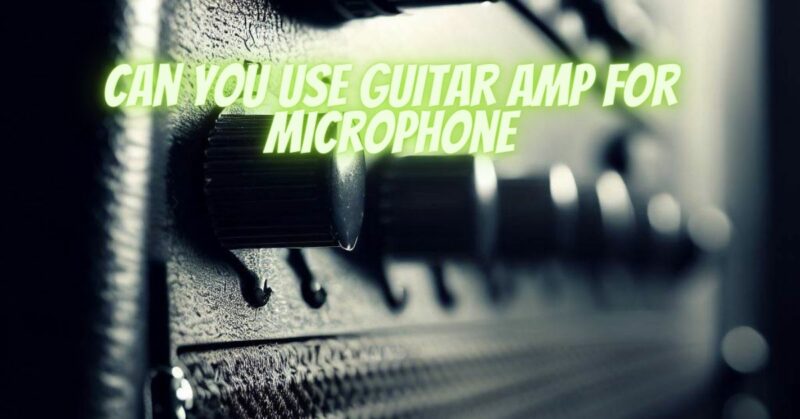Guitar amps are typically designed to amplify the sound of an electric guitar. However, they can also be used to amplify vocals. In fact, many singer-songwriters use guitar amps to amplify their vocals.
Can You Use a Guitar Amp for a Microphone?
Yes, you can use a guitar amp for a microphone. However, there are a few things to keep in mind.
- Guitar amps are designed to amplify high-frequency sounds. This means that they may not sound as good for vocals, which have a wider range of frequencies.
- Guitar amps typically have a lot of gain. This can cause the vocals to sound distorted.
- Guitar amps may not have the same features as a dedicated microphone amp. For example, they may not have a built-in reverb or other effects.
Tips for Using a Guitar Amp for a Microphone
If you are planning on using a guitar amp for a microphone, here are a few tips:
- Use a clean channel. The clean channel on a guitar amp is typically better for vocals than the distorted channel.
- Turn down the gain. If you turn up the gain on the amp, the vocals will sound more distorted.
- Experiment with the settings. Experiment with the different settings on the amp to find the sound you like.
- Use a microphone with a high output. This will help to prevent the vocals from being lost in the sound of the amp.
Guitar amps can be a great way to amplify vocals. However, it is important to be aware of the limitations of guitar amps when using them for vocals. With a little experimentation, you can find the perfect settings on your guitar amp to get the sound you want out of your microphone.
Here are some additional tips for using a guitar amp for vocals:
- Use a condenser microphone. Condenser microphones are more sensitive than dynamic microphones, and they will pick up more of the detail in your voice.
- Place the microphone close to your mouth. This will help to ensure that the vocals are picked up clearly.
- Experiment with the placement of the microphone. Try different positions to see where the sound sounds best.
- Use a pop filter. A pop filter will help to reduce the plosives (popping sounds) that can occur when you sing.


